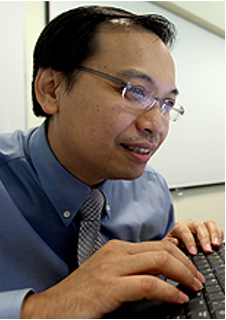IACAPAP President’s Message – Dec 2020
IACAPAP: A History of Giving
By: Dr Daniel Fung, IACAPAP President, Adjunct Associate Professor, Lee Kong Chian School of Medicine Singapore

The IACAPAP was formed 82 years ago based on a group of psychiatrists from Europe coming together. It was an entirely voluntary effort and with the French President Georges Heuyer, who used the auspices of his university position to support and organise meetings. Over the years, the movement has gained momentum and developed itself into the IACAPAP that we know, holding regular meetings for sharing scientific discovery and academic socialising called world congresses and nurturing young professionals in both clinical leadership and research acumen through the Donald J Cohen Fellowship Programme and the Helmut Remschmidt Research Seminars. Alongside this, a large treasure trove of curated online training materials including the world-famous JM Rey IACAPAP Textbook, an annual Massive Open Online Course as well as a resource rich website with regular newsletters and a growing social mediapresence. All of this is regularly updated and improved yet without requiring anyone to pay for these directly. Everything is provided for free in the public domain. When I started becoming involved in IACAPAP, I asked “How does this work?” “How is it sustainable?”
I discovered that it works on philanthropy. Most people think philanthropy is the product of high income or high net worth individuals sharing their financial resources, i.e. giving a donation. Donation of money is only one form of philanthropy. In fact, the term philanthropist as described in the Merriam Webster dictionary as “one who makes an active effort to promote human welfare”. In that sense, aren’t we as mental health professionals, have a calling as philanthropists? Philanthropy is about causes. If the cause is worthy, philanthropists emerge as was the case in IACAPAP. The voluntarism over 80 years is part of the mandate that is enshrined in the Constitution of IACAPAP, to advocate for the promotion of the mental health and development of children and adolescents through policy, practice, and research. Philanthropy is not just about giving generous donations but about advocacy as well. Good philanthropy results in developing strategic priorities focused on the cause and engages the interested groups in meaningful activities. The volunteerism that we have observed in the work of IACAPAP is in fact priceless. Even as our treasurer frets over the funds we do not have, I think that IACAPAP has benefitted richly from the giving to our cause over the years. This is because volunteers give of their time and effort towards the cause. They provide a voice that resonates with others and more people come forward. One example is the IACAPAP textbook which started with Joe Rey and his ideas. He collected the first chapters and asked professionals at the top of their fields to contribute. Not money, but time and effort to write the chapters. There were no financial incentives or royalties, just a belief that this can help share knowledge to lower resourced parts of the world. Now, there are frequent requests for new chapters and new translations in an enterprise that seems to sustain itself. And it is being used widely across the globe, it has received more than a million downloads.
We need more of such philanthropy. If you are reading this and you wish to contribute to our global effort, I offer you 3 types of gifting that you can do for the IACAPAP cause. The first is the gift of money. We have created the website to receive your donations readily. It is still not perfect but you can give with a touch of a button. Your money will be used carefully as we have a fundraising committee led ably by Prof Liu Jing from Beijing. She has created a set of guidelines for how donations are managed and we have a committee to make sure that every donation goes to the global work of IACAPAP to improve child and adolescent mental health. You can give once off, or you can give regularly. We are working towards developing a way to allow regular contribution through our new web portal coming soon. The second is the gift of time and effort. We need volunteers to help us create content and materials in all our various educational initiatives. Write to us info@iacapap.org if you have something to give. The third is the gift of voice that can help influence the work of IACAPAP. Ask your local organisation which may be a member of IACAPAP to help you with gaps and needs you see important in your work. If your country or region has no local organisation, you can start one and IACAPAP can help. IACAPAP is not just an organisation for psychiatrists. It is for all professionals focused on mental health in the young. So, if you are a teacher or a nurse or any other professional and want to participate in the work of IACAPAP, speak to your local professional group and ask them to join IACAPAP. We will be sharing a new membership model very soon (see article by our Secretary General).
Even as we reach the end of a very surreal year, with vaccinations round the corner, the world will soon reopen to a new normal. I look forward to seeing greater philanthropy emerge from our ranks. In this season of giving, let us give a moment to think about how we can do more to advocate for child mental health, and let us come together as a global community to make our world better for the next generation.

